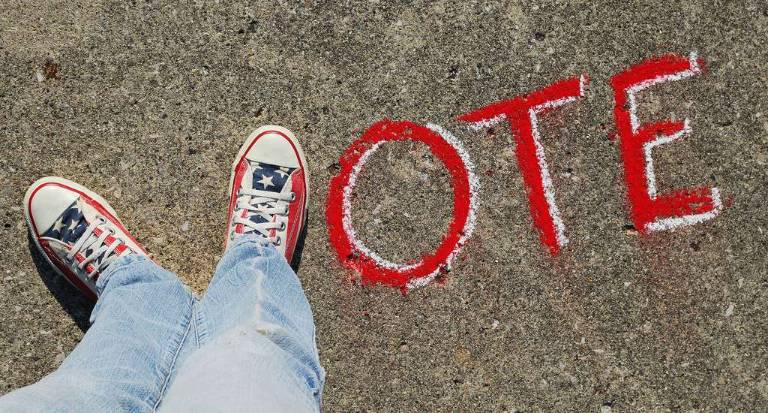What Sussex County residents can expect to see at the polls in November

BY ERIKA NORTON
NEWTON — With both major party presidential candidates fighting for votes across the country, local voters are wondering what they can expect to see when they head to the polls.
At numerous campaign rallies, Republican candidate Donald Trump has encouraged supporters to become election observers or poll watchers. Which begs the question, what is a poll watcher?
According to Sussex County Board of Elections Commissioner Marge McCabe, candidates or the political party appoint poll watchers, who essentially oversee the election process. Watchers receive documentation from the board of elections, which authorizes them to be onsite on Election Day.
“They have to stay in their district,” McCabe said, “unless they are at large by the county political chairman, and then they can travel to different polling places. They can sit near but not at polling table so that poll workers know that they need to give them a chair. They may not be involved in the signature comparison process. They shouldn’t even be looking at the roster books.”
McCabe said that watchers can have a computer, as long as they do not access the Internet. Poll watchers will also sometimes come prepared with a list of voters to keep track of who votes so that they can leave in the evening to do phone banks, which is allowed.
They may not address the voter directly other than to say hello, McCabe said.
“It’s difficult not to say hello,” McCabe joked, “especially if it’s your neighbor.”
As of Oct. 20, McCabe said she only had a request for four county-wide poll watchers so far.
Voter challenges
While there is no voter ID law in the state of New Jersey, something voters should be aware of is that any eligible voter can challenge another voter’s credentials in their jurisdiction.“If a person wants to challenge a voter, it can only be on their age, their residency or their citizenship,” McCabe said.
Voters can not challenge for any other reason.
Challengers also may not address a voter directly, according to McCabe. If they have an issue with a voter’s registration, they need to address that with a poll worker and the poll worker will ask questions of the voter.
If there is a serious challenge, then the poll workers will vote on whether or not this voter will be allowed to vote.
“Let’s say a voter comes in and a challenger says I know this voter isn’t 18 years old, I know they’re only 16,” McCabe said. “Then the poll workers might agree together to request to see an ID, like a driver’s license, to verify the age of the voter. Or if a challenger says I know this voter moved four years ago and no longer lives in Sussex county, then the poll workers may agree to ask to see ID.”
Poll workers will fill out paperwork in regards to the challenge as well, McCabe said. If the voter is denied the right to vote, that voter can still go to the Superior Court in Newton and go before a judge to challenge that decision.
There is also no limit to the amount of challenges someone can make, but McCabe stressed that they need to be legitimate challenges.
“If a challenger came and was doing frivolous questioning,” McCabe said, “the poll workers would call me and that would be addressed, because then they would be interrupting the election process.
“Challenges are pretty much nonexistent in Sussex County, and I would think statewide because our voter rolls are so clean. We’re tied in to Motor Vehicle and Social Security and Probation so we get alerts should there be any issue. So I’m very proud of that fact.”
Voter rights
Voters do not need to show ID to vote in the state of New Jersey, however if you are a first-time New Jersey voter who registered by mail, and election officials could not verify your identifying numbers (your New Jersey driver’s license or ID number or the last four digits of your Social Security number), you will have to provide proof of identification, either at the polls or anytime before Election Day. Valid identification includes photo IDs, a current utility bill, a bank statement, a paycheck, car registration and a rent receipt.Voters can also receive assistance voting with the electronic voting machines after a district board worker fills out a disability certificate.
If any voter ever feels intimidated, or sees other illegal activity outside or inside the polling place, McCabe said they should talk to the poll workers or call her.
“My phone number is listed right on the wall,” McCabe said. “We have a huge poster which is a voter’s bill of rights and our number is at the bottom of it. So any voter can call this office if there’s an issue.”